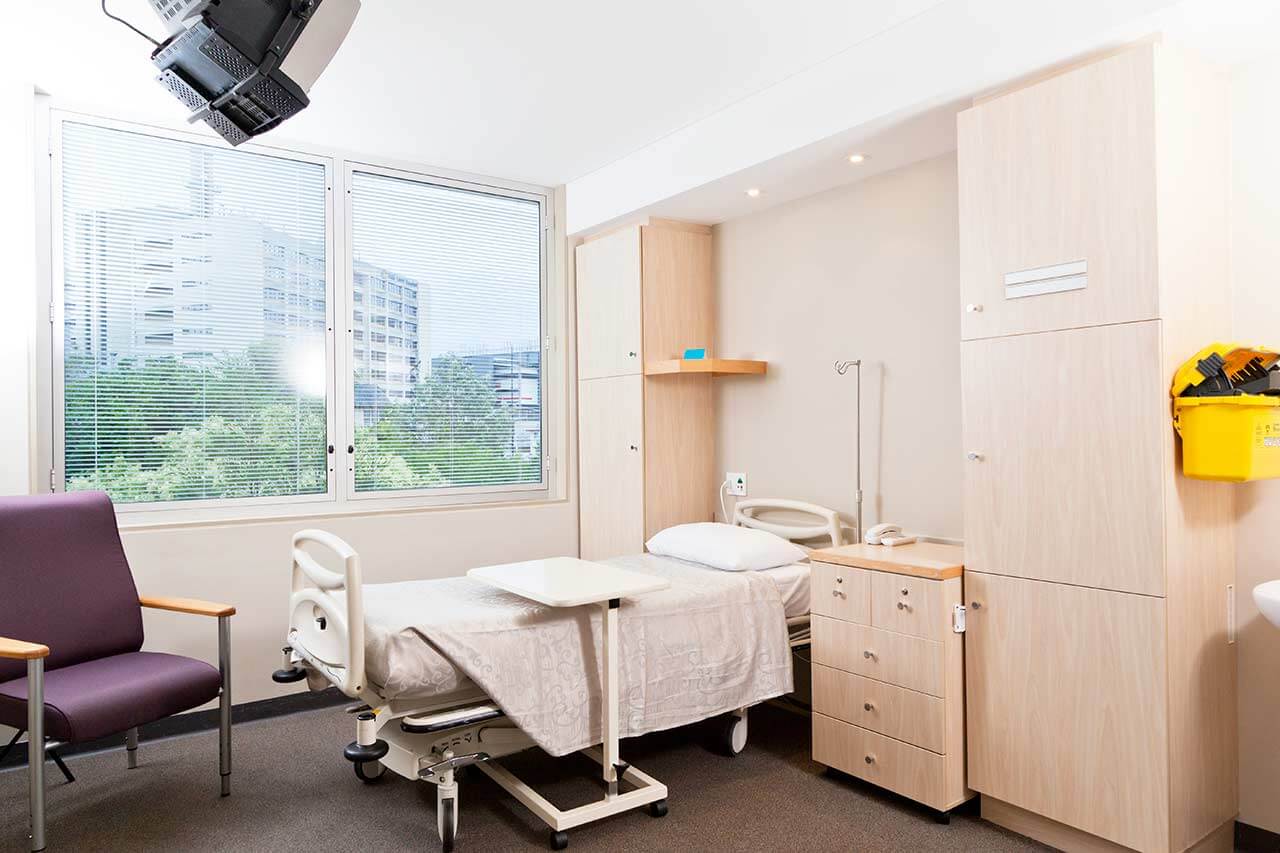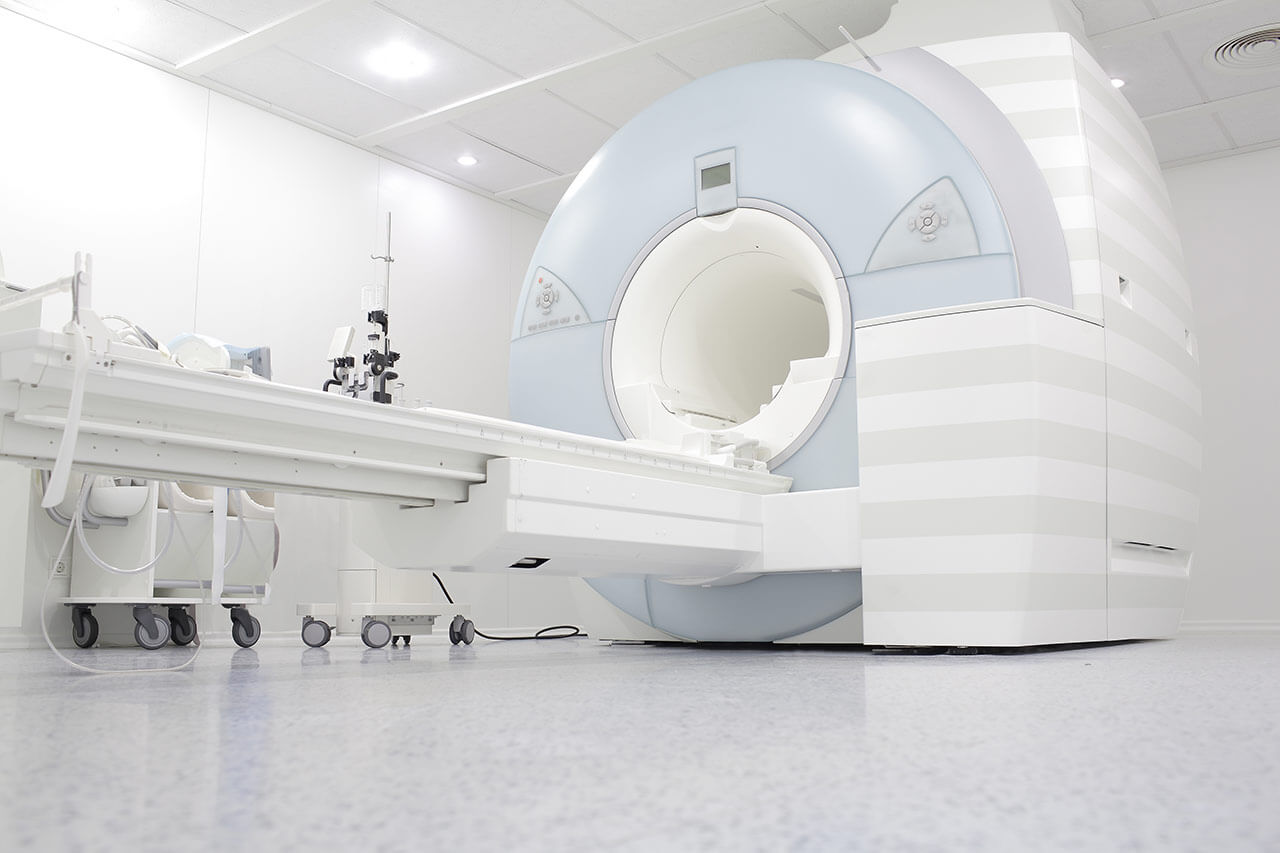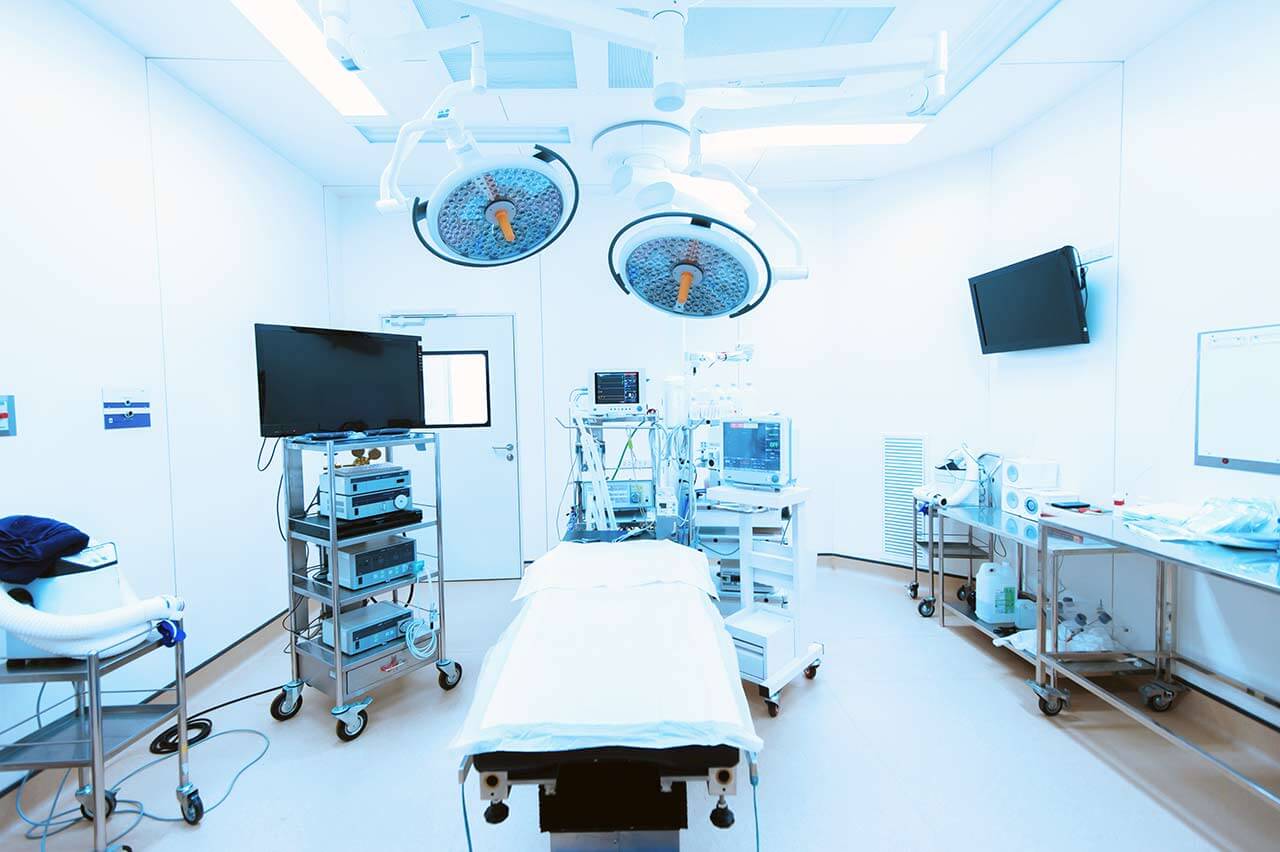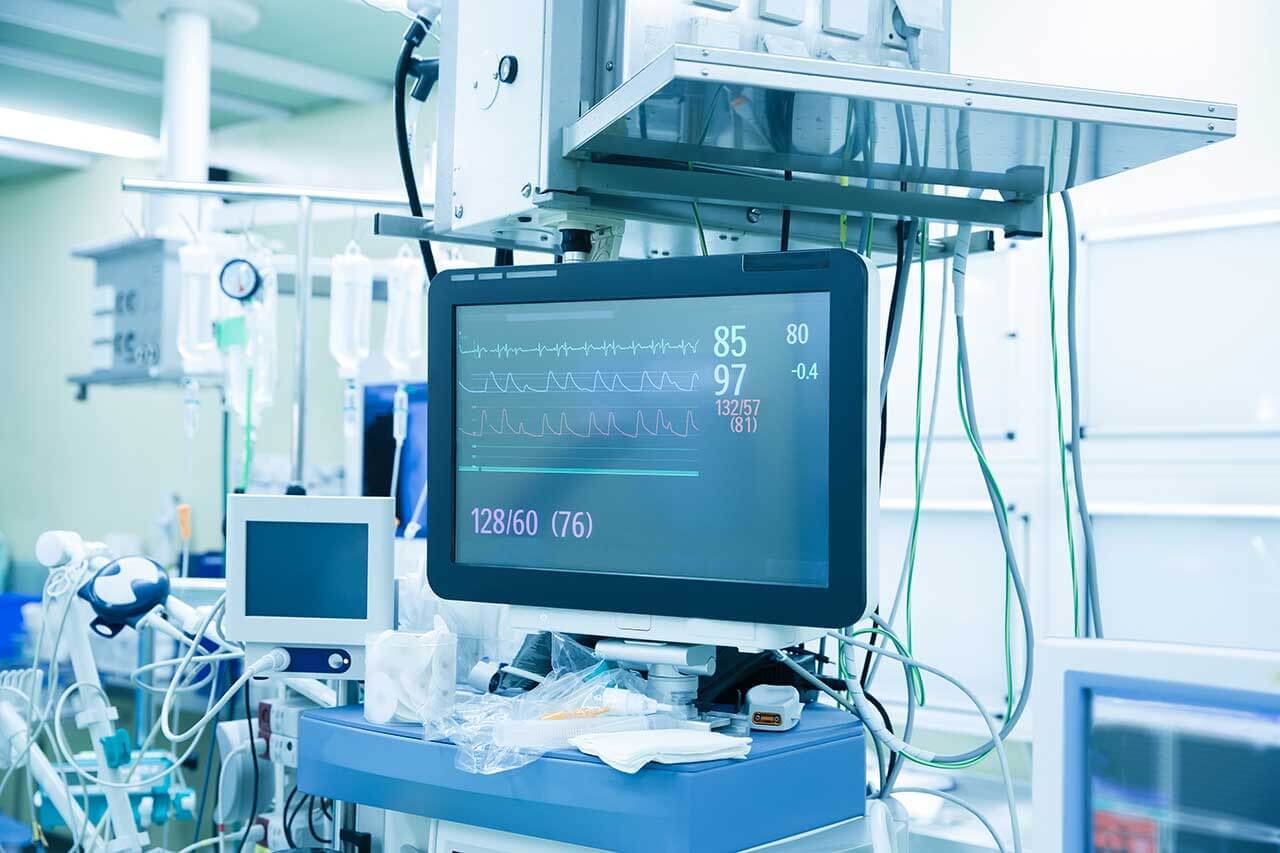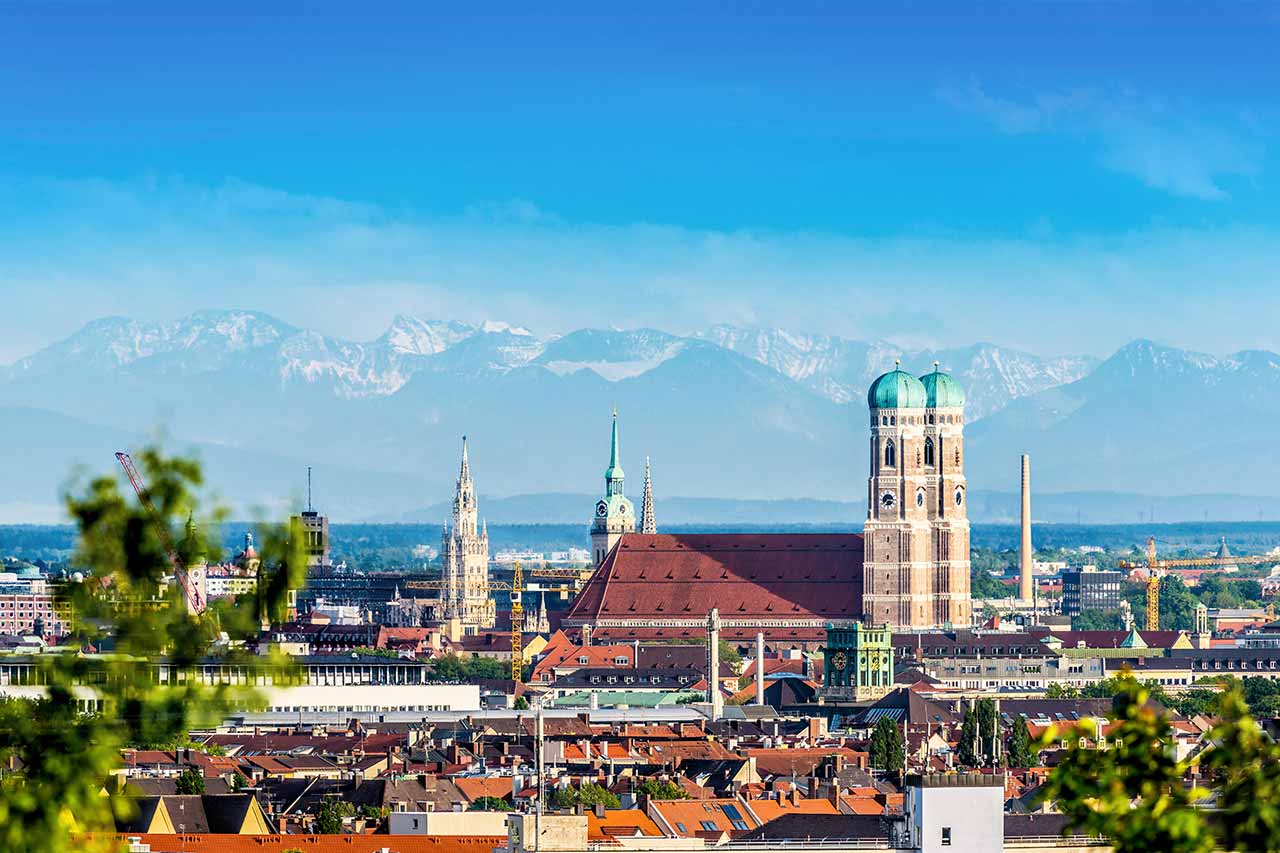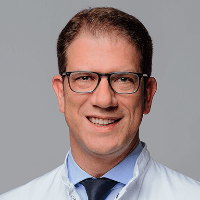
The program includes:
- Initial presentation in the clinic
- case history collection
- general clinical examination
- laboratory tests:
- complete blood count
- general urine analysis
- biochemical analysis of blood
- TSH-basal
- tumor markers
- indicators of inflammation
- indicators of blood coagulation
- abdominal ultrasound scan
- CT / MRI of chest and abdomen
- 1 course of chemotherapy
- consultations of related specialists
- symptomatic and specific treatment
- the cost of essential medicines and materials
- nursing services
- control examinations
- full hospital accommodation
- developing further treatment plan
How program is carried out
During the first visit, the doctor will conduct a clinical examination and go through the results of previous laboratory tests and instrumental examinations. After that, you will undergo an additional examination, including laboratory assessment of liver and kidney function, ultrasound scan. Based on the received results, the doctor will elaborate the chemotherapy regimen. If necessary, related medical specialists will be involved in the elaboration of a treatment regimen (tumor board).
Chemotherapy is carried out as the inpatient procedure, with mandatory admission to the hospital. After the placement of a venous catheter, you will stay in a comfortable ward. An infusion system will be connected to the catheter, through which the required drug or a drug combination will be administered. All drugs are administered by intravenous drip, slowly, so the total duration of the infusion can be up to several hours. All this time, doctors and nurses will monitor your health condition closely.
After the course of chemotherapy, you will stay under medical supervision in the ward for a few more hours. After the completion of the chemotherapy course and control examinations you will receive the medical report with detailed recommendations regarding further treatment. In the future, you will be able to have a distant consultation with your attending physician and schedule the next course of chemotherapy, if necessary.
Required documents
- Medical records
- MRI/CT scan (not older than 3 months)
- Biopsy results (if available)
Service
You may also book:
 BookingHealth Price from:
BookingHealth Price from:
About the department
The Department of Hematology and Oncology at the University Hospital Rechts der Isar Munich offers the full range of diagnostic and therapeutic services in these fields. The highly qualified team of the department's doctors provides effective treatment of all cancers and blood pathologies (for example, leukemia, multiple myeloma, non-Hodgkin's and Hodgkin's lymphoma) in accordance with the very latest international standards. The department performs autologous and allogeneic bone marrow transplantation, as well as provides innovative CAR T-cell therapy. It should be noted that the department is certified as the Comprehensive Cancer Center Munich, and also has a quality certificate from the German Cancer Society. The medical facility has the very latest equipment, implements innovative treatment methods, and at the same time pays due attention to comprehensive consultations and a humane attitude towards patients. Patients can get special nutrition counselling, as well as competent psychological care. The department is headed by Prof. Dr. med. Florian Bassermann.
Treatment tactics are developed at interdisciplinary tumor boards with the participation of hematologists, oncologists, surgeons, radiation therapists, radiologists, specialists in the field of pathological anatomy and nuclear medicine, so that each patient receives an optimal treatment plan corresponding to his particular clinical case. The department's main therapeutic options include classical chemotherapy, high-dose chemotherapy, targeted therapy, multimodal therapy, immunotherapy, radiation therapy, combined chemoradiation therapy, surgical treatment methods, etc.
It is worth highlighting the progressive type of CAR T-cell therapy. The essence of this treatment method is the collection of T-cells from the patient's body using apheresis and their follow-up processing, which makes it possible to program leukocytes for recognizing and destroying cancer cells. Once processed, leukocytes will be administered into the patient's body by an intravenous infusion. CAR T-cell therapy has shown excellent results, especially in cases where other treatment methods have failed. Another advantage of this therapeutic option is the low risk of side effects after the course of treatment. Even if they do develop, the side effects are temporary and can be easily controlled with medications. Indications for CAR T-cell therapy are aggressive lymphomas, acute lymphoblastic leukemia, and advanced multiple myeloma.
The department is also justly proud of its achievements in the field of autologous and allogeneic bone marrow transplantation. The doctors of the medical facility have over 30 years of successful experience in the field of autologous bone marrow transplantation. This procedure is indicated to patients with multiple myeloma, Hodgkin's and non-Hodgkin's lymphomas, germ cell tumors, sarcomas, etc. Allogeneic transplantation has been performed in the department since 2002. This type of treatment can be used in patients with acute or chronic leukemia, multiple myeloma, myelodysplastic syndromes, myeloproliferative neoplasms, and severe aplastic anemia. The department has a certificate from the Joint Accreditation Committee JACIE, which confirms the high competence of the medical facility in this area.
The department provides diagnostics and treatment of the following diseases:
- Hematology
- Acute and chronic leukemia
- Malignant lymphomas (Hodgkin's and non-Hodgkin's lymphomas)
- Multiple myeloma (plasmacytoma)
- Chronic myeloproliferative diseases
- Myelodysplastic syndrome (MDS)
- Oncology
- Small cell and non-small cell lung cancer
- Malignant gastrointestinal tumors (esophageal, stomach, pancreatic, colon cancers)
- Gastrointestinal stromal tumors
- Malignant endocrine tumors (thyroid, parathyroid, adrenal cancers)
- Malignant bone and soft tissue tumors (sarcomas)
- Malignant tumors of the female reproductive system (uterine and cervical cancers, ovarian, vulvar, vaginal, fallopian tube cancers)
- Malignant tumors of the male reproductive system (prostate, testicular cancers)
- Malignant head and neck tumors
- Skin cancer
- Kidney and bladder cancers
- Other hematological and oncological diseases
The department's diagnostic and therapeutic range of services includes:
- Surgical treatment
- Chemotherapy
- Targeted therapy
- Multimodal therapy
- Immunotherapy
- Radiation therapy
- Combined chemoradiotherapy
- CAR T-cell therapy
- Autologous and allogeneic bone marrow transplantation
- Other treatment methods
Curriculum vitae
Prof. Bassermann studied Medicine in Ulm, Munich and New York. He received his doctoral degree from the Technical University of Munich. The doctor began his clinical and scientific career at the Technical University of Munich, even before becoming a Postdoctoral Fellow at New York University (2006 - 2009). After returning to the Technical University of Munich, he became the Head of the Emmy Noether Junior Research Group (funding from the German Research Foundation). Here he had his board certification in Internal Medicine, Hematology and Oncology, as well as habilitation. In 2011, he was appointed as Senior Physician, and in 2015, he was invited to the position of Professor at the Technical University of Munich. Since November 2017, Prof. Bassermann has been the Head of the Department of Hematology and Oncology at the University Hospital Rechts der Isar Munich.
Awards and Honors
- 2015 ERC Consolidator Grant.
- 2015 Langener Science Prize.
- 2015 Theodor Frerichs Prize, German Society of Internal Medicine (DGIM).
- 2010 Walther Flemming Medal, German Society of Cell Biology (DGZ).
- 2009 Participation in the Emmy Noether Program of the German Research Foundation.
Photo of the doctor: (c) Klinikum rechts der Isar der Technischen Universität München
About hospital
The University Hospital Rechts der Isar Munich was founded in 1834. It combines long traditions with the very latest advances in modern medicine. The medical facility includes 33 specialized departments and 20 interdisciplinary centers, where patients can receive top-class medical care in all medical fields.
The hospital annually admits more than 65,000 inpatients for diagnostics and treatment, and about 250,000 outpatients receive effective medical care. The hospital also performs more than 40,000 surgical procedures every year, and about 2,100 babies are born here annually. One of the most significant achievements of the medical facility can be called the first transplantation of both arms above the elbow performed in 2008. The surgery that lasted 15 hours, and in which 40 doctors of various medical specialties took part, became a real sensation in the scientific world. Thanks to a unique surgical procedure, the doctors managed to give the patient new hands.
In addition, the employees of the hospital are actively involved in research activities, in which they study various diseases, as well as develop new therapeutic options for their treatment. It should be noted that the research institutes of the hospital are among the most reputable research organizations in the world. A striking example can be considered the Roman Herzog Comprehensive Cancer Center, whose specialists cooperate closely with the Comprehensive Cancer Center Munich in order to find new treatment methods for cancers.
The university hospital has a strict quality management system to maintain a high level of patient care. Since 2011, the hospital has been certified in accordance with DIN EN ISO 9001:2015 at the national and international level. The medical facility was also recertified by TÜV Rheinland in 2020.
The hospital annually provides medical services not only to German citizens, but also to thousands of patients from different countries of the world. This indicates that the hospital has an excellent reputation in the international medical arena and takes on the most complex clinical cases where other medical centers are unable to help the patient.
Photo: (с) depositphotos
Accommodation in hospital
Patients rooms
The patients of the University Hospital Rechts der Isar Munich live in comfortable single and double rooms with modern design. An accompanying person may stay with the patient in the single room. All patient rooms have an ensuite bathroom with shower and toilet. The furnishings of a standard patient room include an automatically adjustable bed, a bedside table for personal belongings, a table and chairs for receiving visitors, a wardrobe, a telephone and a TV. The patient rooms also have Wi-Fi.
The hospital also has enhanced-comfort rooms, corresponding to the level of a high-end hotel. Such patient rooms have additional amenities: a safe, a mini fridge and upholstered furniture.
Meals and Menus
The patients of the hospital are offered a balanced and healthy three meals a day: breakfast, lunch and dinner. The patients have a choice of three different menus for lunch – a classic full menu, as well as a dietary and vegetarian one. When cooking meals, the chefs comply with the current recommendations of the German Society for Nutritional Medicine (DGEM) and the German Nutrition Society (DGE).
If for some reason you do not eat all the foods, you will be offered an individual menu. The hospital also houses a cafeteria with a large assortment of hot and cold drinks, snacks and desserts.
Further details
Standard rooms include:
Religion
Religious services are available upon request.
Accompanying person
Your accompanying person may stay with you in your patient room or at the hotel of your choice during the inpatient program.
Hotel
You may stay at the hotel of your choice during the outpatient program. Our managers will support you for selecting the best option.
The hospital offers a full range of laboratory tests (general, hormonal, tests for infections, antibodies, tumor markers, etc.), genetic tests, various modifications of ultrasound scans, CT scans, MRI and PET / CT, angiography, myelography, biopsy and other examinations. Treatment with medications, endoscopic and robotic operations, stereotaxic interventions is carried out here, modern types of radiation therapy are also used. The hospital offers patients all the necessary therapeutic techniques.
- CAR T-cell therapy
- Autologous and allogeneic bone marrow transplantation
- Transcatheter aortic valve implantation (TAVI)
- Radical and organ-preserving interventions for kidney cancer
- Iridoplasty and iridotomy with Nd-YAG laser
These are acute and chronic leukemias, solid malignant tumors, heart failure, cardiac arrhythmias, heart valves stenosis and insufficiency, vasculitis, benign prostatic hyperplasia, pathologies of retina and vitreous body, Guillain-Barré syndrome, myasthenia gravis and other pathologies.
- Hematology and oncology
- Cardiology
- Nephrology
- Urology
- Ophthalmology
Over 877 highly qualified physicians work at the hospital.
